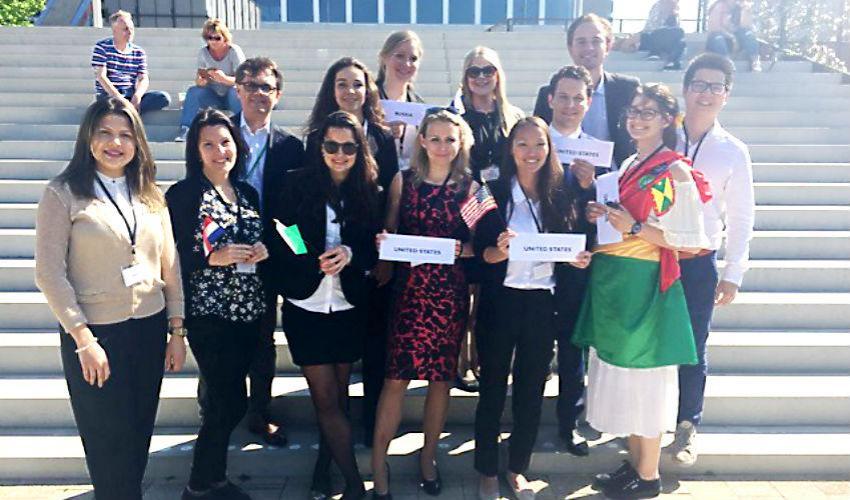
Much Sweat in Negotiating for Climate in Rotterdam
AT THE MODEL UNFCC ROLE PLAY, CEMS STUDENTS PRODUCED AN EFFORT TO OBTAIN BETTER RESULTS THAN COP21'S. EXPERIENCING HOW HARD IT IS TO REACH AN AGREEMENT CHANGED THEIR OPINION ON THE RESULTS OF INTERNATIONAL CONFERENCESIn December 2015, the Conference of the Parties in Paris (COP21) reached an agreement on climate. It was both greeted with skepticism because of its non-binding nature and welcomed with satisfaction as an important step in the right direction. Whether you want to see the glass half-full or half-empty, the agreement only sketched outlines on issues such as adaptation strategies, the Green Climate Fund management and the Mechanism for Loss and Damage for developing countries affected by the rise of global temperature that could generate waves of climate refugees. The new Conference of the Parties will be held in Marrakech in November: will it provide answers to those impending issues?
Some 115 students coming from seven business schools and universities of the CEMS network gave their own answers during the Model UNFCCC Role Play. It’s a simulation of the forthcoming Conference of the Parties and it was held last week at the Rotterdam School of Management. Thirteen Bocconian students played the roles of seven different countries: US, Russia, Holland, Spain, Nigeria, Grenada, Dominican Republic. The simulation was part of Stefano Pogutz’s Green Management and Corporate Sustainability course. Before going to Rotterdam, each team produced two position papers, one transparent to be submitted to the working groups to set the agenda, and one confidential to be used as a negotiation tool.
The groups met for coalition building on the evening of May 11, before the official start of the session. Teachers covered the role of senior advisors, whilst other students worked as members of NGOs, associations, and the press. “It’s an unique active learning experience”, Pogutz says. “Students practice basic negotiating skills. They analyze and understand the connection between climate change, politics, society and economy. They realize how complex the dynamics of transformation are”.
The simulation ran on two different tracks: plenary sessions and meetings of three working groups, which dealt with mitigation, adaptation, and market mechanisms. “I learned a lot”, says Hubert Halopé, a CEMS student who represented the US. “I experienced to what extent a paragraph in an agreement may contain strong words but no binding content. I learned how complicated it can be to negotiate with different countries each putting their national interest above the global interest”. This latter aspect impressed his teammate Anne Pehse: “The United Nations Framework Convention on Climate Change was established in 1992, the Paris agreement came in 2015. Before this role play I wondered: what did they do in the last twenty-three years? Now that I’ve experienced how hard it is to reach an agreement, I have a completely different opinion on the Conferences of the Parties”.
At the very beginning, Federica Pozzato, a student of International Management and representative of Russia, was skeptical: she did not think it was possible to experience a high level involvement in a simulation. “I was wrong. We spent half an hour to weigh a single word and decide whether to use the indicative or the conditional in a sentence”. Gi Jiang praises “the chance to have a firsthand experience of the need to balance economic and environmental development, especially for the most vulnerable countries like the one I represented, the Dominican Republic. Moreover, the simulation gave me a chance to meet CEMS students from other universities, share experiences, build a network”.
Nina Kayser says it was sometimes hard to stay calm during protracted negotiations that took place during lunch time and in the evening. “I tried to act as if the future of Nigeria depended on my decisions, which is why it was crucial not to give up and pursuing my interest. We have to understand that reducing GHG emissions is an opportunity for all of us and we have to act now”. The simulation came to an end on Friday, May 13. An agreement was signed by all countries except Saudi Arabia. It was another lesson on the importance of each country’s position in the negotiation process.
by Claudio Todesco
